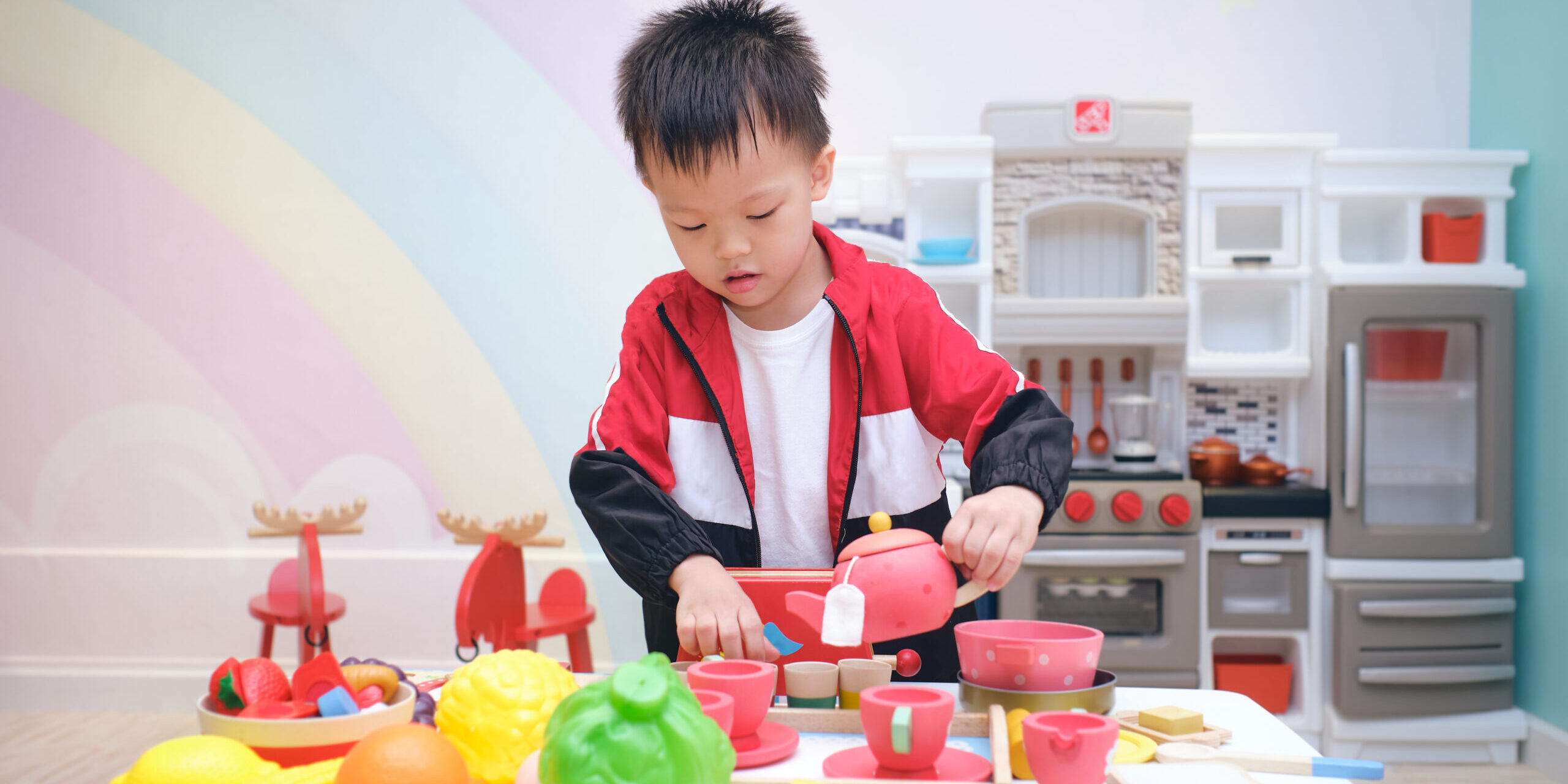During a speech-language therapy session, we use many play-based activities that are also familiar in the home environment. With some clever – or maybe even obvious – enhancements to these activities, you can be using the same strategies at home to support your child in their speech, language, and overall communication development. In this Activity Feature series, we bring you tips and tricks on turning the activities you already know and love into fantastic (and fun!) learning opportunities.
Activity: Pretend Play
Unfamiliar observers of a speech-language therapy session may sometimes be baffled that any therapy is occurring at all, as sessions often appear to simply be the child playing and having fun. In reality, play is a naturalistic way by which children learn about their environment, communication, and interacting with others. By capitalizing on these naturally occurring opportunities for learning, pretend play can be one of the most effective forms of therapy.
Pretend play can be highly imaginative, with or without toys, such as when playing with dinosaurs, monsters, or pretending the floor is lava. Pretend play can also be imitative, as when children mimic adult activities in their play – think of baby dolls, play food, and toy cars. It can be easy to receive pretend play from children; for example, accepting a “meal” the child has prepared with pretend food or affirming information the child shares about their pretend play (“Oh yes, I do hear the baby crying”). These are positive interactions, but parents and caregivers can take advantage of pretend play to encourage language growth by becoming a more active participant. Get down on the floor with the child and enter their world, assume the role of another character in their play, and don’t be afraid to simply be silly!
Skills Addressed
By pretending, children learn much about the way the world works and in a very real sense are practicing the skills of later childhood and adulthood. Within play, however, children are also faced with many opportunities to communicate, which in turn provides a parent or caregiver the opportunity to encourage the development of language skills.
Pragmatics: It may come as a surprise that play is a skill, and in many ways is learned by observing. Play is the primary method by which children interact with one another, and if a child is struggling with social skills, they likely also struggle with play. Playing alongside your child, you can increase their tolerance of others in their play space, model new ways for them to play in order to expand their play skills, and introduce your own ideas into their play routines to promote flexibility and cooperation.
Expressive Language: Practice descriptive language with your child by modeling (e.g., “I am driving the big, blue truck”) and seeking clarification (e.g., “Are you a big monster or a small monster?”). Expand your child’s phrases by repeating what they say back to them, with the addition of one or two more words (e.g., child says: “doggie”, you say: “brown doggy” or “doggie run”). Introduce more adult-like sentences into your child’s play by repeating back their sentences with correct grammar (e.g., child says: “he are jump”, you say “yes, he IS jumpING!”).
Receptive Language: You can subtly practice following directions in play, and vary the complexity of your instructions based on your child’s abilities. For example, when play with a toy kitchen, you can request your child to cook specific foods, ask them to place dishes in specific locations, or provide multiple steps for serving a meal to their favorite stuffed animal.
While these are only a few examples, with practice you can use pretend play to address many other skills. To discover more ways to support your child’s growth using pretend play and other activities – for the skills listed above as well as articulation, voice, resonance, fluency, AAC, and feeding – reach out to our pediatric speech-language therapy clinic located in Tukwila by calling (206) 458-5360.

